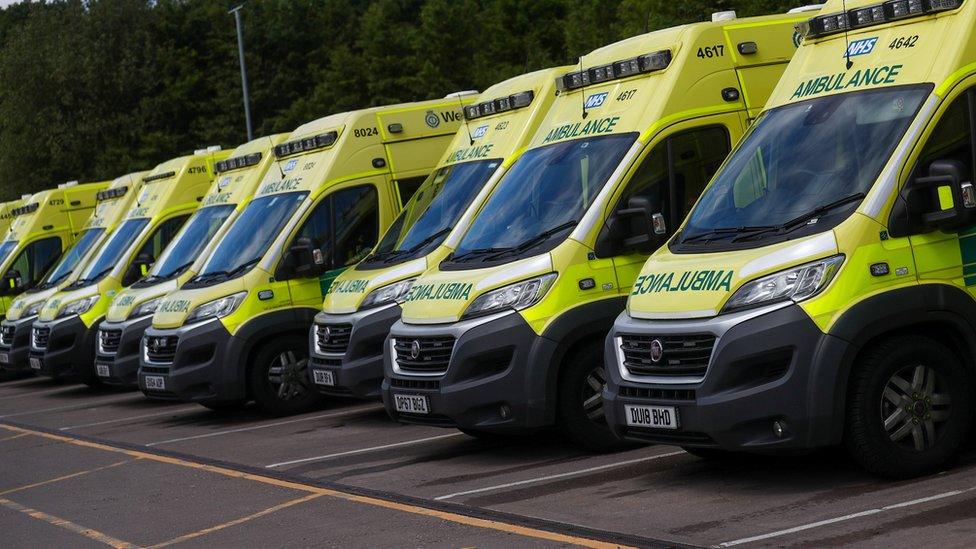West Midlands Ambulance Service mistakes caused serious incidents
- Published
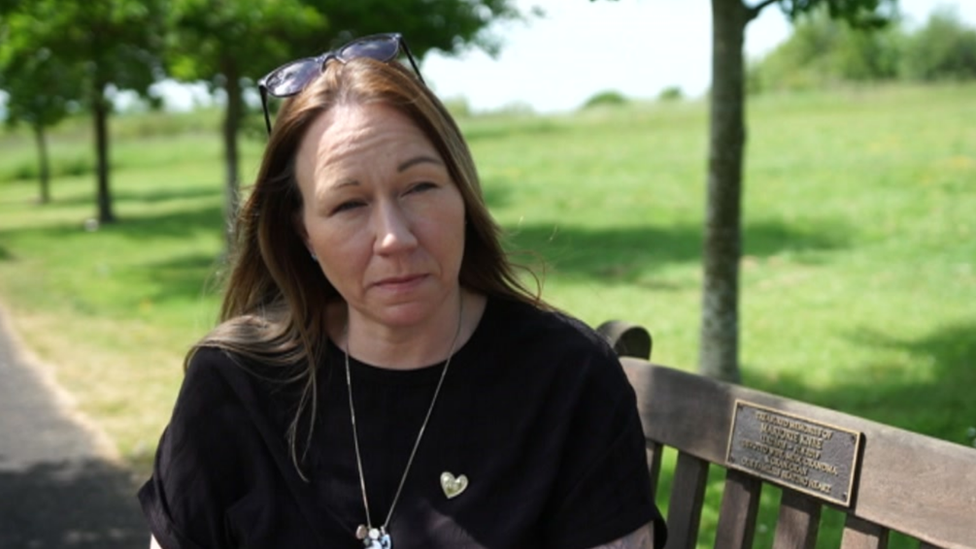
Naomi Rees-Issett says she had to fight to have her son's death to be investigated by the ambulance service
More than half of all serious incidents where patients came to harm involving West Midlands Ambulance Service were due to clinical errors.
A trust audit found choking management, cardiac arrests and inappropriate patient discharges as themes.
It also noted a decision to close all community ambulance stations was taken without first doing a full risk assessment of the impact on safety.
Serious incidents have reduced as a result of action taken since.
West Midlands Ambulance Service (WMAS) also said its ambulance station closure programme had been independently validated.
After the number of serious incidents increased from 138 in 2021-22 to 327 in 2022-23, an audit by WMAS found 53% were due to mistakes with their treatment.
The Care Quality Commission (CQC) watchdog said it was currently reviewing serious incidents at the ambulance trust and would carry out an inspection in due course.
A situation where a person comes to significant harm in care is identified as a serious clinical incident.
Sources say the trust also delayed completing investigations into 5,000 incidents, some of which involved patients.
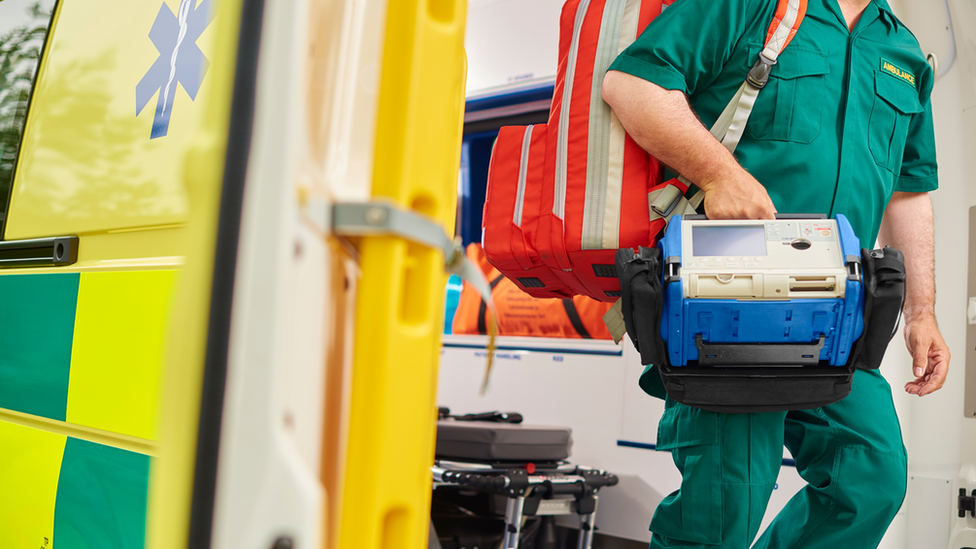
Mistakes accounted for 53% of serious incidents in 2022-2023
Naomi Rees-Issett's 18-year-old son Jamie died after going into cardiac arrest in Rugby and waiting more than 17 minutes for an ambulance in January 2022.
Mrs Rees-Issett says she had to fight for an investigation by the ambulance service.
"I know how long we waited and how hard we had to try to get any form of investigation, so this does not surprise me at all," she said.
In this instance, WMAS said, due to crews tied up outside hospitals, it had not had an ambulance that could have got there sooner.
It said a huge percentage of its serious incidents were caused by ambulances being delayed outside hospitals while paramedics waited to hand over patients, which then impacted on other aspects of its service.
"When we realised what was happening, we put in place additional checks. As a result, we have seen the number of serious incidents come down," it said.

WMAS said serious incidents had reduced as a result of action taken
There were concerns about staff following the appropriate protocols.
"The trust looked at what was going on and took necessary action to remedy the situation," said communications director Murray MacGregor.
West Midlands Ambulance Service says it is taking on 10 extra staff to look into patient safety incidents.
With regard to the backlog of 5,000 cases, the trust said it had a new system in place.
"As part of that, we have identified a number of incidents that were not investigated as they should be. We have now examined all of those cases," Mr MacGregor said.
"Three resulted in serious incidents being identified and they are being investigated."
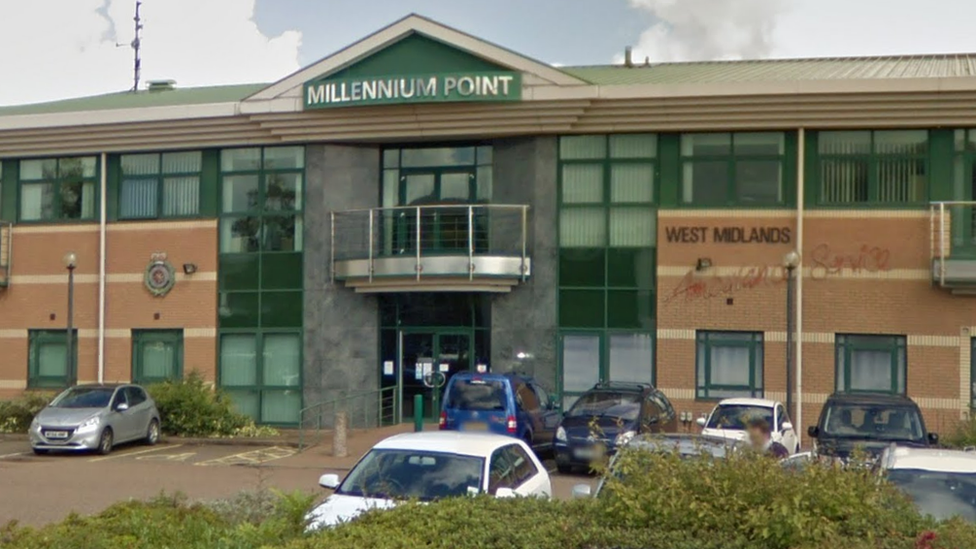
WMAS said a huge percentage of its serious incidents were caused by ambulances being delayed outside hospitals
In October 2021, months before Jamie Rees's death, a decision was taken to remove the community ambulance station in Rugby, along with ambulance stations across the region.
The minutes of a quality assurance meeting in January, days after Jamie's death, show the decision was taken without a full risk assessment having been undertaken.
The minutes reveal that Mark Docherty, the then nursing director, told the quality governance committee: "The process was slightly cart before the horse as the closures had happened before the quality impact assurance had been completed."
Mr Docherty said he was not saying the Community Ambulance Service should go, but the trust did not have the resources to put into them.
Unite union representative Steve Thompson called the process "quite deplorable" and said: "We have let ourselves down badly as an organisation."
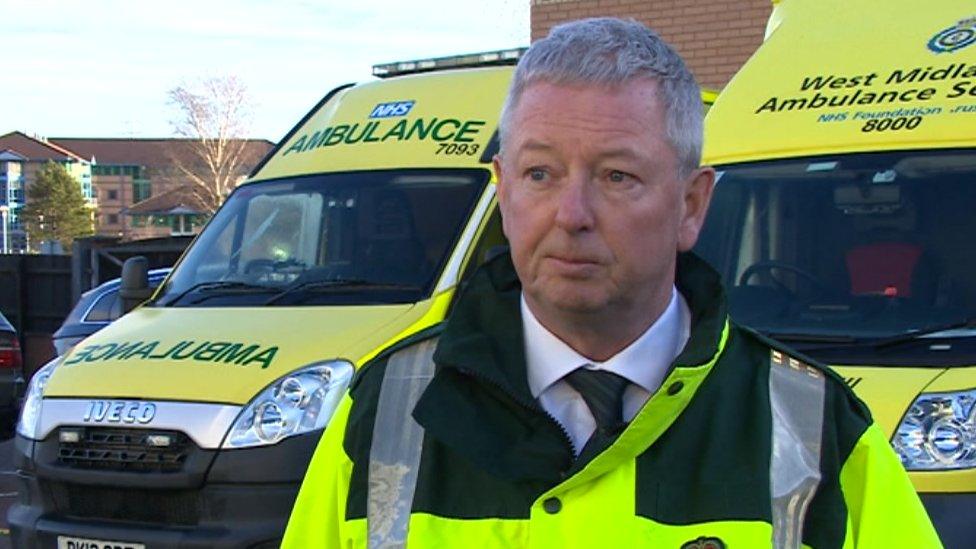
WMAS director Mark Docherty said closures had happened before the likely impact had been fully assessed
Several councillors were elected to Evesham Town Council to fight the closure of their ambulance station.
They began a judicial review of the decision, but Judge Ian Dove refused them leave to appeal on the basis the changes did not materially impact the service they received.
Councillor Julie Haynes was shocked when told of Mr Docherty's comments about the quality impact assessment.
She said: "I had never heard of that phrase [quality impact assurance]... and it makes me very sad indeed because I think that we could have won and then the town could have saved its ambulance service and I think that the judge might have taken us more seriously."
Update 8 September 2023: This story has been amended to make clear the 5,000 incidents investigated did not all involve patient safety.

Follow BBC West Midlands on Facebook, external, Twitter, external and Instagram, external. Send your story ideas to: newsonline.westmidlands@bbc.co.uk, external
- Published28 June 2023
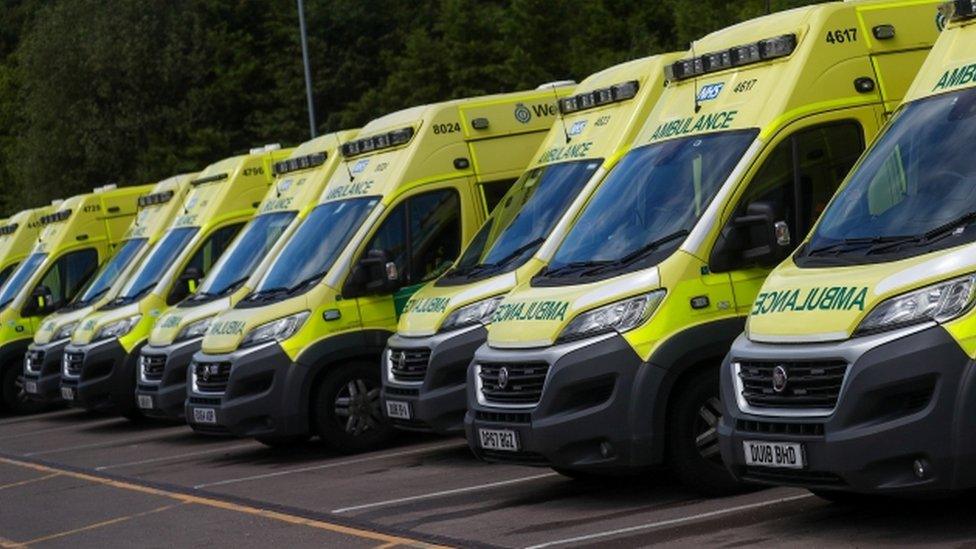
- Published25 May 2022

- Published19 June 2022
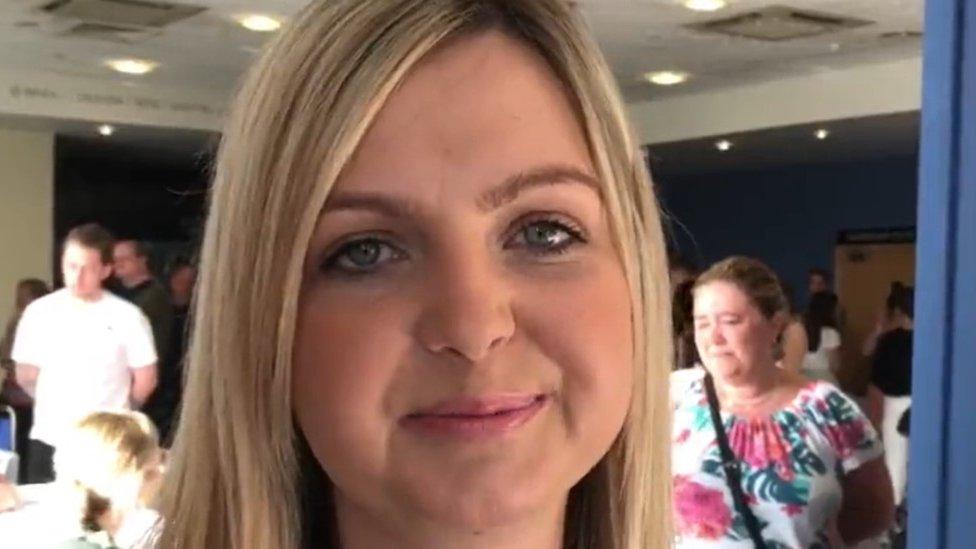
- Published17 September 2021
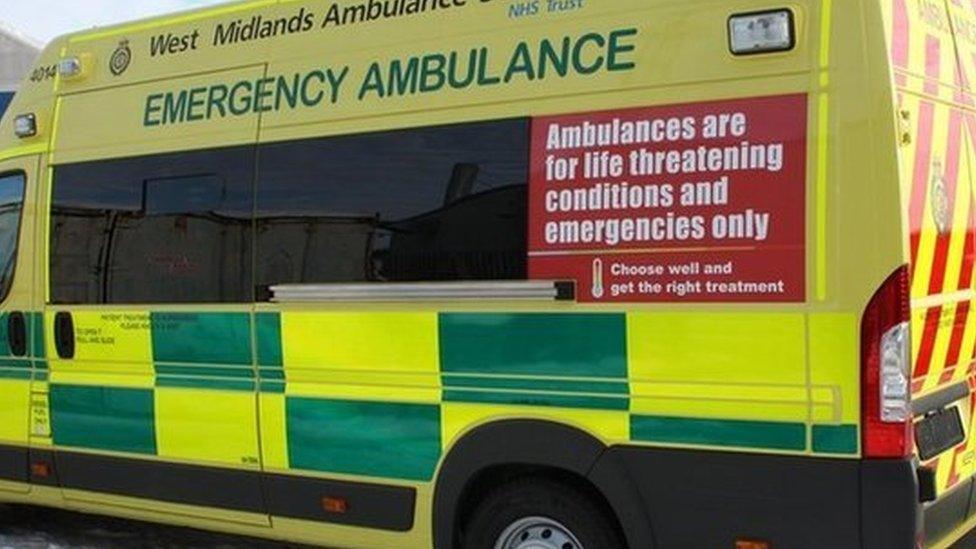
- Published24 August 2021
